Not autorickshaw, public bus suggested for Dhaka roads
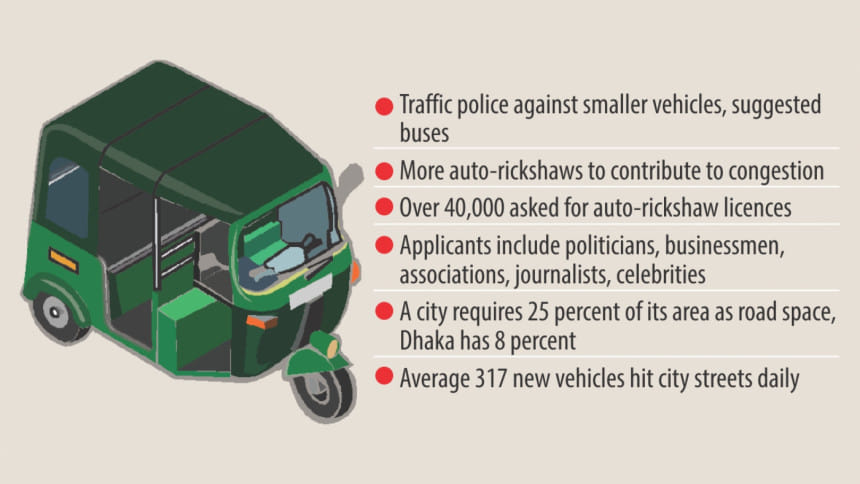
Instead of introducing more buses, the government is moving to allow 5,000 more CNG-run auto-rickshaws on Dhaka streets, which has the potential to worsen the perennial congestion.
“A decision was made in principle to give 5,000 licenses against the withdrawal of as many three-wheeler mishuks from the city streets last year, which deteriorated the transport crisis,” said a senior official of the road transport and bridges ministry, seeking anonymity.
The official said the ministry was against allowing more CNG-run auto-rickshaws on the streets but it had made the decision to ease the transport crisis in the city.
However, experts and studies say the opposite would happen.
Allowing more auto-rickshaws goes against the experts who had been pressing the government not to allow small vehicles on the streets and increase public transports to reduce congestion.
The Dhaka Urban Transport Plan of 1997 and Strategic Transport Plan of 2008 discouraged small vehicles as they carry only a few passengers but contribute to congestion greatly.
A city needs roads on 25 percent of its total area but Dhaka has only eight percent. The number of vehicles in the city is already seven times the capacity of the roads, experts said.
On top of this, an average 317 new vehicles hit the city streets daily.
“Efficient use of existing roads by replacing smaller vehicles with space-efficient vehicles, like buses, is the focus of different studies,” said urban transport expert Prof Shamsul Hoque.
He said more auto-rickshaws would increase congestion in a big way. To maximise the use of the limited road capacity, the studies suggest controlling smaller vehicles and promoting public transports, he said.
However, he said even introducing new buses would not solve the problem.
In a disciplined traffic system, 15,000-30,000 passengers could be transported an hour in one direction. But the rate was only 2,000-5000 on undisciplined streets like Dhaka, said Hoque who teaches at Buet's Civil Engineering Department.
The road transport ministry moved to issue the CNG licences last month following the withdrawal of cases filed for and against the issuance of the licenses, ministry officials said.
They said the ministry has sought opinions of the traffic police, city corporations and the Dhaka Transport Coordination Authority (DTCA) before issuing the licenses.
In its opinion, sent to Deputy Secretary Kamrul Ahsan of the road transport and bridges ministry last week, traffic police opposed the idea of allowing more auto-rickshaws on city streets.
They said it might worsen congestion.
They said there was no alternative to increasing public transport and discouraging smaller vehicles.
Additional Commissioner of Dhaka Metropolitan Police (Traffic) Khandaker Golam Faruk sent the letter that read, “New licenses for 5,000 CNG auto-rickshaws can be issued for public interest if it is not possible to take effective measures to add public transports.”
Explaining the disadvantages of small vehicles, the letter said one small vehicle carries one to two passengers while big buses carry 40-50 people. “Four to six CNGs or private cars occupy the space of one bus but buses carry 10 times more passengers.”
The letter said the city's existing mass transport facilities were in very poor shapes, considering two crore people live in Dhaka. The numbers of cars, microbuses and CNG auto-rickshaws were rather high and they were going up still.
The ministry is yet to get the opinion of the city corporations and DTCA.
Ministry officials said they got applications for approval of over 40,000 CNG licenses in the last three years.
CRISIS TO CONTINUE
The city's transport crisis would continue as neither the government nor the private sectors were likely buy large number of buses in the next few years.
A few private companies are adding buses to their fleets every year, but the government has not taken any move to purchase buses in the last three years, sources claimed.
Secretary of the Road Transport Division MAN Siddique, however, said they have a plan to buy 600 buses under a $2-billion Indian loan. Transport Minister Obaidul Quader also mentioned this during a programme at the BRTC Bhaban in Motijheel yesterday.
Mayor of North City Corporation Annisul Huq in January said he would facilitate the introduction of 3,000 new buses.
Chief Executive Officer of Dhaka North City Corporation Mesbahul Islam said, “We are studying the process. It will take time. We are in discussion with five companies.”
Khandaker Enayet Hossain, owner of Ena Paribahan, told The Daily Star that some 4,500 public buses run on some 153 routes inside the capital.
But sources claimed that the real figure was much lower.

 For all latest news, follow The Daily Star's Google News channel.
For all latest news, follow The Daily Star's Google News channel. 

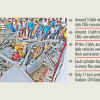
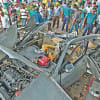
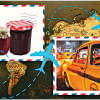
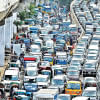



Comments